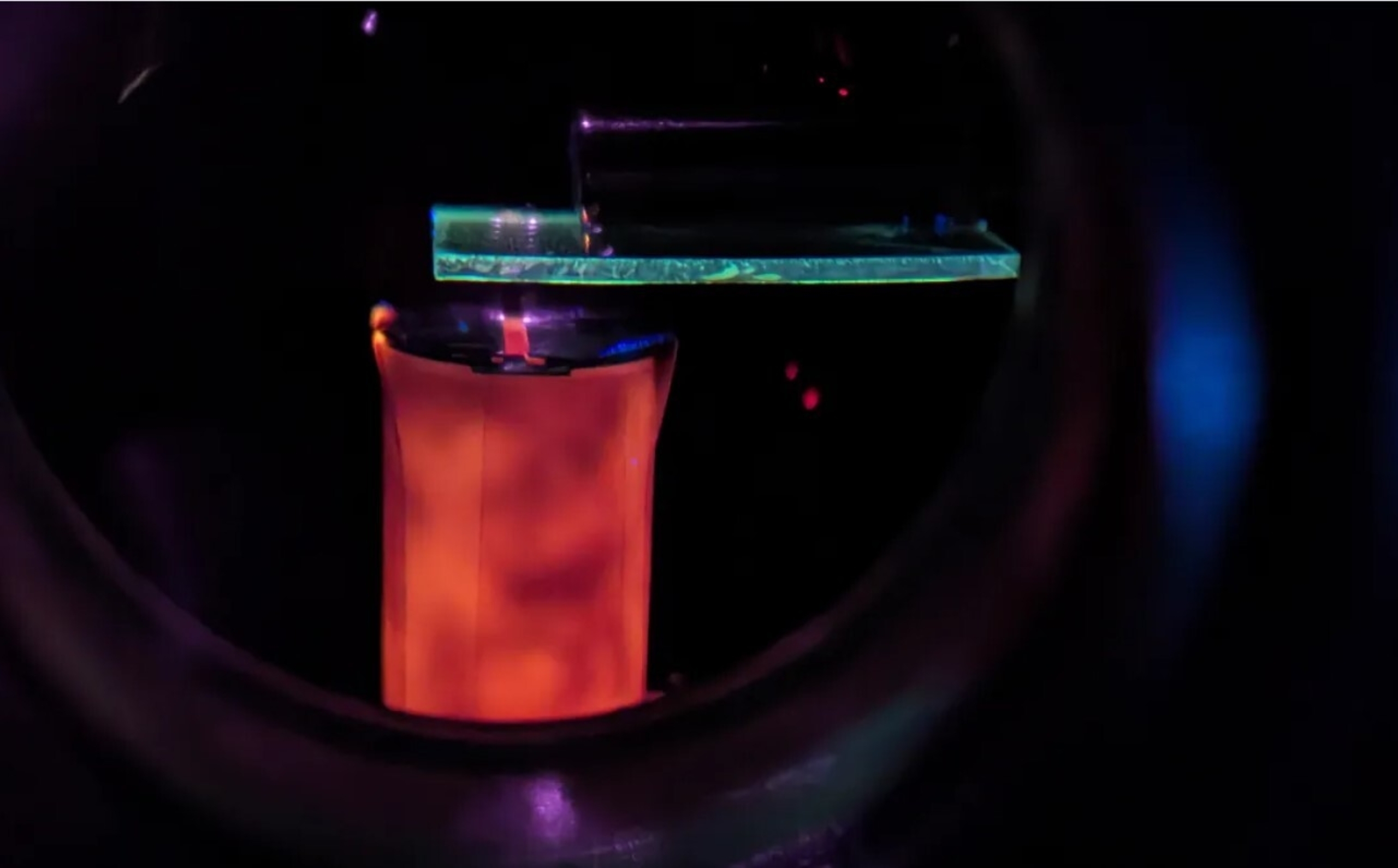Dell Med researchers are part of a new effort to use quantum sensing technologies to develop more efficient and reliable ways to diagnose and prevent serious medical conditions.

Mark Raizen and his team have developed an ultrasensitive tool for measuring stable isotope ratios, which can help study iron deficiency in children. The reddish color is from laser ablation of a powdered sample. The newly developed technique is a fast, reliable and cheaper alternative to expensive mass spectroscopy-based techniques. Photo credit: Raizen Lab/University of Texas at Austin.
Quantum sensing — using the laws of quantum mechanics to count individual atoms, hear the weakest sounds and see the faintest light — holds the potential to transform biomedical and health sciences by improving diagnostics and prevention of diseases. Now the Novo Nordisk Foundation has awarded researchers at the University of Copenhagen, the Technical University of Denmark and The University of Texas at Austin a grant to establish the Copenhagen Centre for Biomedical Quantum Sensing.
Human health depends on our ability to prevent, diagnose and treat disease, but many conditions hardly cause any symptoms in their early stages, when they could be effectively treated. Examples include metabolic disorders, nutritional deficiencies, cardiovascular conditions and brain diseases.
The advancement of quantum sensing technologies enables us to measure small changes in motion, isotope ratios, and electric and magnetic fields far better than traditional sensors. This provides important information that can facilitate earlier detection and prevention of diseases.
Mark Raizen, Ph.D., a professor in the Department of Pediatrics at Dell Medical School at The University of Texas at Austin, will focus, among other things, on research related to the global fight against iron deficiency, which affects about half of all children in the world and has devastating effects on lifelong brain function.
Raizen’s colleague Steven Abrams, M.D., a professor in the Department of Pediatrics at Dell Med, has developed a new highly accurate test for assessing uptake of iron supplements in infants and toddlers, but the test is currently too expensive and requires too large of a blood sample for widespread use.
“We want to take this fundamental science and make it affordable and work with smaller samples, so it can have an impact on society,” said Raizen, who is also a professor of physics at UT Austin and founder and chair of the Pointsman Foundation. “That is my passion — to see physics make a real difference in people’s lives.”
Another aim of Raizen’s team is to use quantum sensing technologies to develop more efficient and reliable ways to diagnose serious medical conditions like chronic kidney disease by investigating new potential sensitive biomarkers.
At the University of Copenhagen’s Neils Bohr Institute, a team of researchers led by professor Eugene Polzik will focus on developing sensors that can be applied to the early diagnosis of heart and brain anomalies, detection of metabolic changes in the body, prevention of malnutrition, nerve degeneration and response to antibiotics.
At the Technical University of Denmark, a team led by physics professor Ulrik Lund Andersen will work on experimental optical and solid-state sensors, including a quantum microscope that will enable the study of biological systems in unprecedented detail.
The new international research collaboration will consolidate and significantly strengthen quantum sensing activities, fostering international synergies and promoting translation into clinical applications.
The Novo Nordisk Foundation has awarded $21.6 million to the three universities for the first six-year phase of the Copenhagen Centre for Biomedical Quantum Sensing. Phase 2 funding will be sought in partnership with the Pointsman Foundation, the independent nonprofit foundation Raizen started.
“Quantum sensing is among the most mature of the quantum technologies,” said Lene Oddershede, senior vice president at the Novo Nordisk Foundation, “and holds the potential to greatly improve medical diagnostics.”